Natural Remedies For Irritable Bowel Syndrome: 8 Proven Tips
Potent and natural solutions to soothe the symptoms of this condition and manage your gut health.
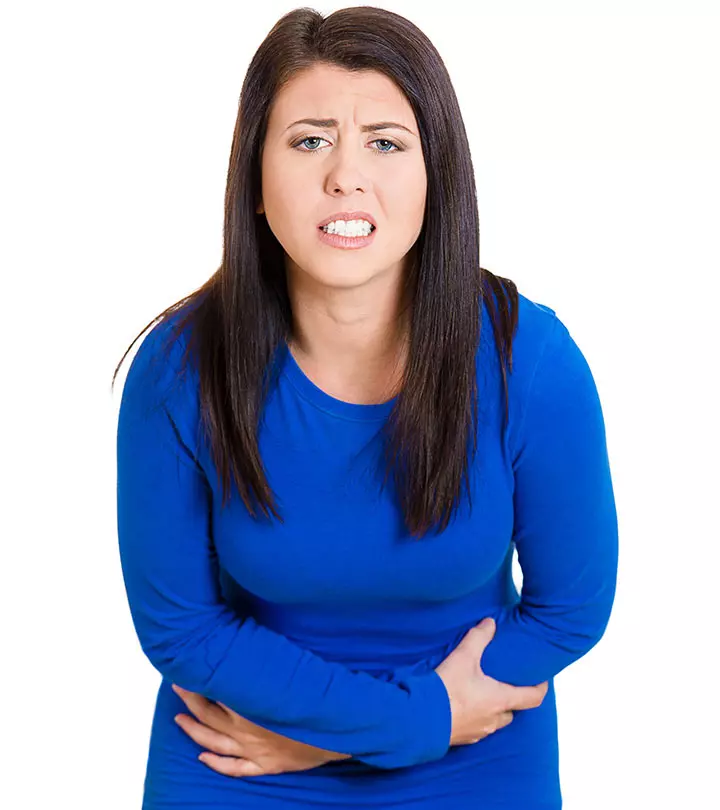
Image: Shutterstock
Irritable bowel syndrome is a painful condition where one may experience diarrhea, bloating, stomach cramps, and diarrhea.
Natural remedies for IBS (irritable bowel syndrome) greatly help in managing the condition. However, it is always best to choose a remedy that best suits your body. IBS is becoming increasingly common as approximately 11% of the population globally is affected by the condition (1). Knowing what triggers IBS can help you make better choices for your health. For this, you should understand how specific foods, stress, and lifestyle habits affect your symptoms. This will allow you to take steps toward managing the condition and its symptoms. Continue reading to learn more about it, IBS management, and the available IBS treatment options.
In This Article
What Is Irritable Bowel Syndrome?
Irritable bowel syndrome (IBS) is a long-term gastrointestinal disorder that is characterized by symptoms like abdominal bloating, irregular bowel movements, mucousy stool, and so on.
This condition is also known as spastic colitis, nervous colon, and mucus colitis. IBS is a chronic condition, but its symptoms may change with time.
A study conducted on 2,428,461 patients found that 15,859 patients had inflammatory bowel disease (IBD), with a prevalence rate of 653 per 100,000 people. Furthermore, the prevalence rates per 100,000 people for Crohn’s disease, ulcerative colitis, and IBD-unspecified were 306 (7,442 cases), 334 (8,121 cases), and 12 (296 cases) respectively.
The cause of irritable bowel syndrome is unclear. However, the following factors are often associated with this syndrome.
Key Takeaways
- Diet, hormonal changes, stress, imbalance in gut flora, and issues with the nervous system may cause irritable bowel syndrome.
- Irregular bowel movements, bloating, gas, and painful stomach cramps are some common symptoms of this condition.
- Peppermint oil, probiotics, acupuncture, aloe vera juice, and lifestyle and dietary changes can help manage IBS symptoms.
What Causes Irritable Bowel Syndrome?
Factors that may have an important role to play in triggering IBS include:
- IBS Diet choices – Certain foods like chocolate, alcohol, milk, caffeine, etc. can worsen the symptoms in some individuals.
- Environmental factors like stress
- Hormonal changes
- Problems with the nervous system – Certain problems with the nerves in your digestive system
- Severe infections like gastroenteritis
- Changes in the microflora of your gut
What Are The Risk Factors For Irritable Bowel Syndrome?
Some factors can also increase your risk of developing irritable bowel syndrome. They are:
- Age – It is more common in those below 50 years of age.
- Gender – Females are more likely to be affected.
- Family history – If any of your close family members had IBS, you are also quite likely to develop it.
- Mental disorders – Disorders like anxiety and depression may also put you at a higher risk of developing IBS.
If you have irritable bowel syndrome, you are quite likely to exhibit some of the following signs and symptoms.
Symptoms Of Irritable Bowel Syndrome
The symptoms of IBS may vary from one individual to another. The most common IBS symptoms include:
- Irregular bowel movements
- Bloating and excess gas
- Abdominal cramps accompanied by pain
- Passing of mucus via the rectum or while passing stool
- Sudden and urgent need to use the loo
Most of these symptoms usually worsen post eating. A flare-up may follow and last for about 2-4 days before the condition begins improving.
Certain symptoms may also affect other body parts and mimic other conditions. Such symptoms may include:
- Fatigue
- Pain during sex (in women)
- Increased urinary frequency
- Bad breath or halitosis
- Joint/muscle aches
- Irregular menstruation
Most of the above symptoms are quite common to both men and women, other than the signs associated with sexual intercourse and menstruation.
If you can relate to the above symptoms, it is better to get yourself tested for IBS to rule out other underlying conditions.
Test For Irritable Bowel Syndrome
There is no specific laboratory or imaging test to diagnose IBS. Your doctor is likely to begin with the analysis of your complete medical history.
This may be followed by a physical examination and tests like a stool test, upper endoscopy, breath test, X-ray, etc. to rule out the possibility of other medical conditions.
Once the other conditions have been ruled out, your doctor may use any of the following diagnostic criteria for IBS:
- Manning Criteria – It focuses on incomplete bowel movements, mucousy stool, changes in the consistency of the stool, and pain that eases upon passing stool. The more symptoms you exhibit, the greater the chances of IBS.
- Rome Criteria – It includes abdominal pain and discomfort that occur on an average of at least once a week in three months. This symptom may be further diagnosed with any two of the following factors – discomfort and pain while passing stool, changes in bowel movements, or changes in the consistency of stool passed.
- Type Of IBS – To prescribe the appropriate treatment, IBS may be classified into any of the three types depending on your symptoms: constipation predominant, diarrhea predominant, and mixed.
There is no IBS cure. The prescribed treatments usually aim at alleviating the symptoms of the condition.
IBS Medical Treatments
Treatment can help ease IBS symptoms and enable you to live as normally as possible.
One of the main ways to manage IBS symptoms is to alter your diet and stay away from foods known to trigger a reaction. We will have a detailed discussion about diet tips for IBS patients later.
Some IBS medications may also be prescribed by the doctor depending on your symptoms. They include:
- Laxatives – To treat constipation symptoms
- Fiber supplements to help with mild constipation
- Antidiarrheal medications
- Pain medicines
- SSRI or Tricyclic antidepressants to help depression while also helping with pain and constipation
- Anticholinergici Drugs that prevent acetylcholine, a neurotransmitter, from causing involuntary muscle contractions in the lungs and digestive system. medications like dicyclomine (Bentyl) to help painful stomach cramps and diarrhea
Some medications that are specifically prescribed for IBS patients are:
- Alosetron (Lotronex) – It helps to relax the colon and is often prescribed to women with severe diarrhea that doesn’t respond to other treatments. It should not be taken by men and is associated with an array of side effects.
- Linaclotide (Linzess) – It promotes secretion of fluid in the small intestine and helps relieve constipation. It may cause diarrhea in some cases.
- Eluxadoline (Viberzi) – It helps ease diarrhea but is associated with side effects like nausea, mild constipation, and, in some cases, it can also trigger a condition called pancreatitisi Inflammation of the pancreas usually caused by alcohol abuse or gallstones with symptoms like vomiting and abdominal pain. .
- Lubiprostone (Amitiza) – It is often prescribed for women with IBS and constipation. It is only prescribed in case of severe symptoms when the patient doesn’t respond to other treatments.
As we mentioned, diet also has a significant role to play in treating IBS symptoms. The following section discusses some useful IBS diet tips.
Diet For IBS
Those with IBS will be advised to reduce the intake of certain foods from their diet (2):
- Foods That Cause Gas – Carbonated drinks, alcohol, and certain fruits and vegetables like apples, prunes, pears, broccoli, cabbage, cauliflower, etc. can also aggravate symptoms of bloating and gas.
- Gluten – People with IBS were observed to show improvement upon stopping the intake of gluten, even if they did not have celiac disease.
- FODMAP Diet – Some individuals with IBS are sensitive to carbohydrates like fructans, fructose, lactose, and others known as FODMAPsi Non-digestible carbs that cause the gut to draw water and bacterial fermentation, leading to bloating and bowel-related problems. — fermentable oligo-, di-, and monosaccharides and polyols. Such carbohydrates are commonly found in grains (wheat, spelt, semolina, barley, rye), fruits (apples, cherries, mangoes, figs), veggies (asparagus, Brussels, cauliflower mushrooms), and dairy.
Heather, a blogger, shared her personal journey with irritable bowel syndrome (IBS). She said, “I finally went to a Dietician, and she had me try the low FODMAP diet. After a few months, I am finally feeling like my happy self again (i).”
IBS patients must increase the intake of certain foods to help ease the symptoms:
- High-fiber foods like grapes, berries, leafy greens, eggplant, and zucchini.
- Gluten-free foods like oats, quinoa, millet, and buckwheat.
- Nuts
- Seafood like salmon and tuna
- Lean meat and other protein-rich foods like eggs, tofu, beef, and poultry.
Now that you have a fair idea about what constitutes the perfect diet for IBS, let us look at some additional remedies that can help manage IBS symptoms. Listed below are some of the best home remedies that can help treat IBS symptoms effectively with minimal side effects.
8 Natural Remedies To Treat IBS Symptoms
1. Peppermint Oil Capsules

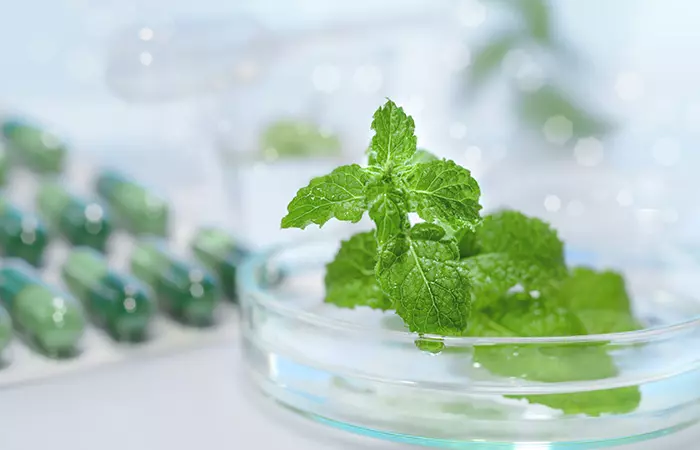
You Will Need
Peppermint oil capsules
What You Have To Do
Consume 180-200 mg peppermint oil capsule daily for about 6 months. Consult a doctor for the correct dosage.
How Often You Should Do This
You can take 1-2 capsules daily.
Why This Works
Peppermint oil can relieve the general symptoms experienced by IBS patients and improve their quality of life (3). This could be due to its anti-inflammatory activities.
Caution
Patients experiencing severe constipation, diarrhea, gallstones, orGERDi A digestive disorder that occurs when stomach acid or bile repeatedly flows back into the esophagus. must avoid taking peppermint oil capsules.
2. Probiotics
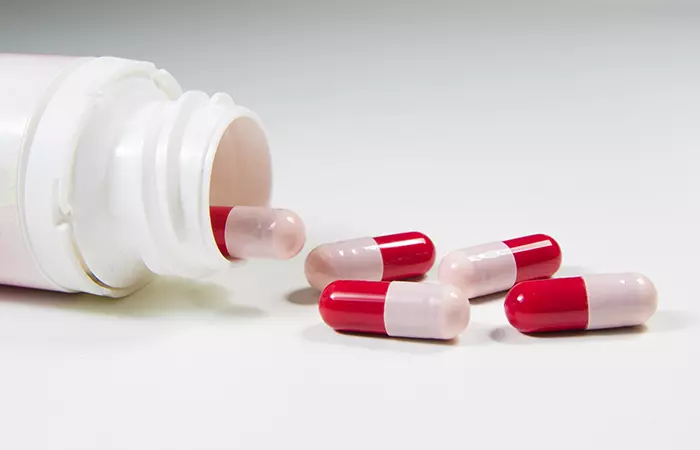
You Will Need
Probiotic supplement
What You Have To Do
- Consume probiotic supplements daily after consulting your doctor.
- Alternatively, you may also consume probiotic-rich foods like yogurt or kefir.
How Often You Should Do This
You may take this 1-2 times daily or as advised by your doctor.
Why This Works
According to a study published in the World Journal Of Gastroenterology, probioticsi Live microorganisms that help improve gut health and are found in fermented foods, such as pickles and yogurt. exhibit a beneficial effect on IBS symptoms and can be used to alleviate them (4).
3. Acupuncture

Acupuncture is an alternative medicine therapy that uses one or multiple needles on specific acupuncture points all over the body to provide IBS relief. This therapy is a great option for treating the symptoms of IBS (5). However, you must avail this therapy only from a trained acupuncture professional.
 Quick Tip
Quick Tip4. Slippery Elm
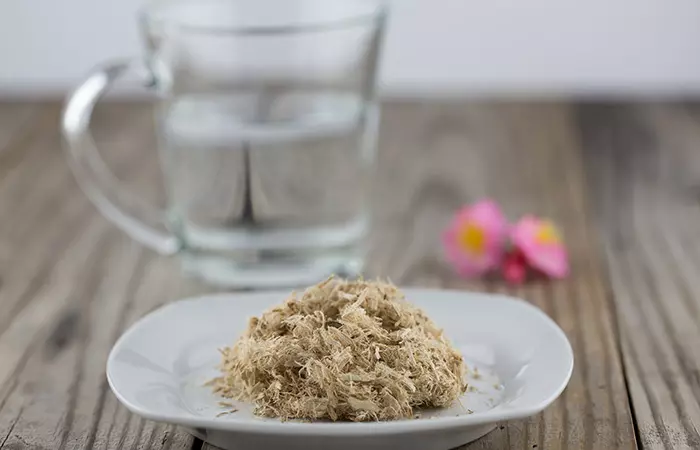
You Will Need
- 1 tablespoon of slippery elm powder
- 1 cup of boiling water
- Honey (optional)
What You Have To Do
- Add a tablespoon of slippery elm powder to a glass of boiling water.
- Stir well and allow it to steep for 5-7 minutes. Let it cool for some time.
- Drink the concoction.
- You can also add honey to the mixture for flavor.
How Often You Should Do This
You may drink this 1-2 times daily or as prescribed by your physician.
Why This Works
Slippery elm powder is an herbal remedy that helps in treating inflammatory bowel disease with its antioxidant nature (6). This makes it an effective remedy to manage the symptoms of IBS.
5. Artichoke Leaf Extract

You Will Need
Artichoke leaf extract supplement
What You Have To Do
Consume artichoke leaf extract supplement daily after consulting your doctor for a suitable dosage.
How Often You Should Do This
Consume this based on your physician’s advice.
Why This Works
Artichoke leaf extract can help in treating IBS symptoms and improving the quality of life of the patients. It was found to be as good or even better than other existing treatments for managing IBS symptoms (7).
6. Aloe Vera
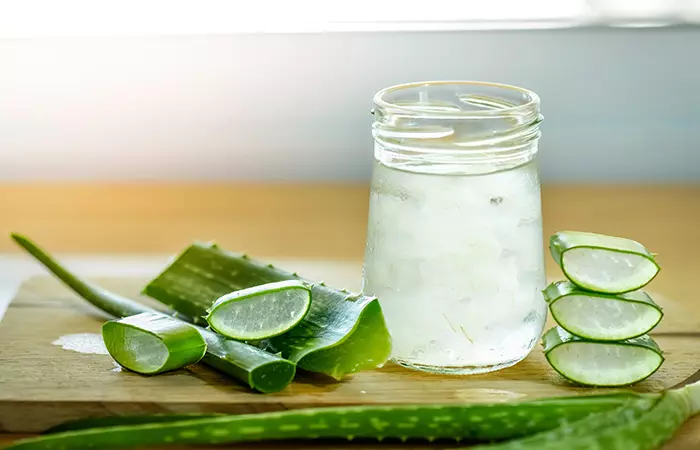
You Will Need
2-4 ounces of aloe vera juice
What You Have To Do
Consume 2-4 ounces of aloe vera juice once daily. Consult a doctor before doing so to be sure that this remedy doesn’t interfere with any other medications that you are on.
How Often You Should Do This
You can drink this once daily or as prescribed by your physician.
Why This Works
The intake of aloe vera juice can help to alleviate the symptoms of IBS. These benefits could be due to its anti-inflammatory and laxative effects. However, this remedy should only be used for short-term treatment (8).
 Quick Tip
Quick Tip7. Triphala
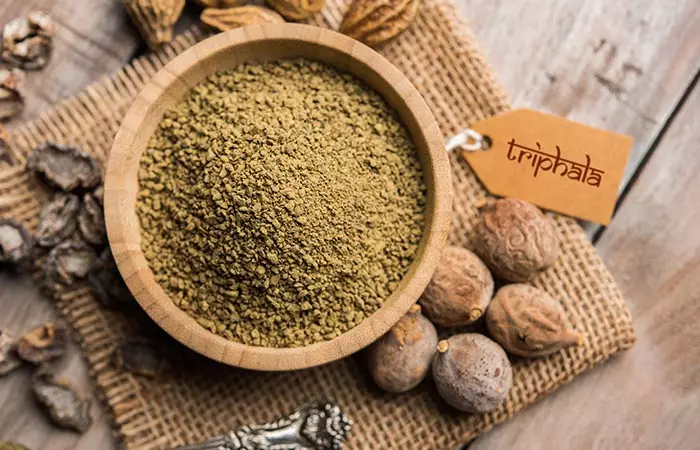
You Will Need
Triphala supplement
What You Have To Do
Consume Triphala supplement daily. Talk to your health care provider to find the correct dosage of Triphala for you.
How Often You Should Do This
You may take this on a daily basis, preferably between meals.
Why This Works
Triphala is an herbal concoction that is made of three therapeutic plants native to India, namely, amla, bibhitaki, and haritaki. The anti-inflammatory and antioxidant properties exhibited by this concoction make it an effective treatment option for managing IBS symptoms (9).
8. Vitamin D
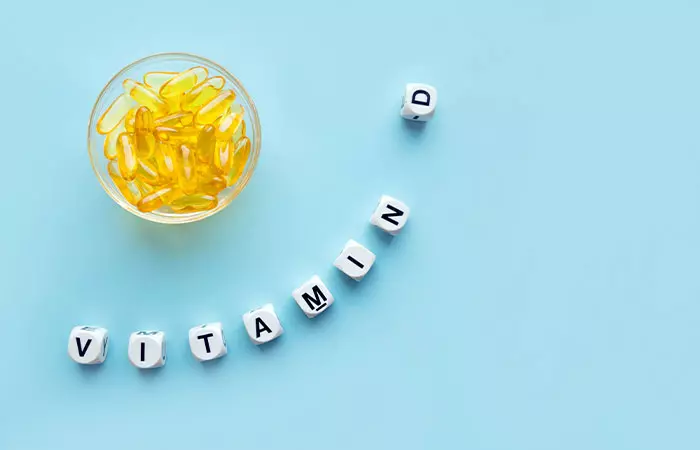
You Will Need
Vitamin D supplement
What You Have To Do
Consume it after a meal for better absorption inside the body.
How Often You Should Do This
You can take it once a week or as advised by your doctor..
Why This Works
Vitamin D deficiency has been commonly observed in people with IBS. Taking vitamin D supplementation for irritable bowel syndrome may help manage the symptoms. A study conducted on 90 patients with irritable bowel syndrome found that taking vitamin D for 6 months showed significant improvement in symptoms such as flatulence, abominable pain, distention, and overall gastrointestinal symptoms as compared to the placebo group (10).
Now that you know all about the natural hacks for managing irritable bowel syndrome, how about some tips to prevent its symptoms from recurring often?
How To Manage IBS
- Exercise regularly.
- Get enough sleep and rest.
- Drink plenty of fluids.
- Avoid caffeine and alcohol.
- Quit smoking.
- Manage your stress levels.
- Limit your dairy intake.
- Eat smaller meals more frequently instead of large meals.
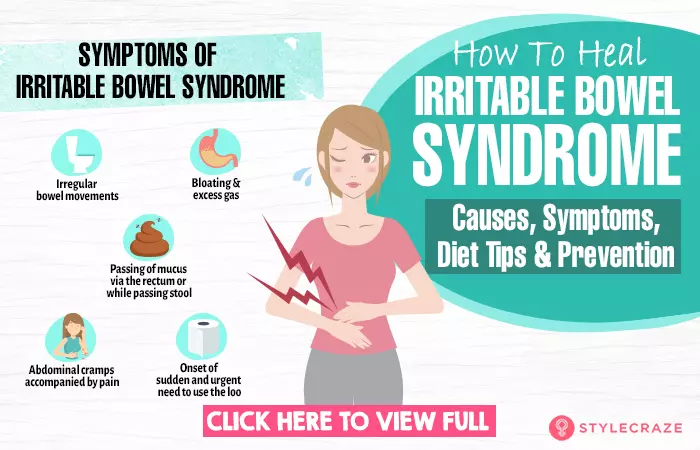
Did you find this post informative? Share your thoughts with us in the comments below.
Infographic: Common Triggers For IBS Symptoms
Irritable Bowel Syndrome (IBS) generally manifests as abdominal bloating, gas, diarrhea or constipation, and general discomfort. While living with IBS is hard, it is a manageable condition once you know the dos and don’ts.
Learn from the infographic about the most common IBS triggers to find out ways to mitigate them.
Some thing wrong with infographic shortcode. please verify shortcode syntax
Irritable bowel syndrome (IBS) is a painful gastrointestinal disorder. Bloating, pain in the stomach, and gas are some common symptoms of this condition. Stress, hormonal changes, and certain foods like chocolate, milk, and caffeine are the major IBS causes. Peppermint oil capsules, probiotics, acupuncture, slippery elm, artichoke leaf extract, and aloe vera are some natural remedies for irritable bowel syndrome. In addition, you also can drink plenty of fluids, quit smoking, exercise regularly, and get enough sleep to help prevent IBS. However, consult your doctor if none of these remedies work.
Frequently Asked Questions
Can IBS symptoms change over time?
Yes, IBS symptoms may fluctuate over time, becoming more or less severe depending on how you handle the condition. Factors like diet, stress, and overall health can influence these changes.
How can stress management impact IBS symptoms?
Stress management is believed to greatly reduce IBS symptoms. Stress is a common trigger of this condition, so trying management techniques may help (11). Techniques like meditation, yoga, and deep breathing exercises may help ease discomfort.
Is IBS fatal?
No. However, IBS is long-lasting as it does not have a conclusive cure.
Can I get IBS from eating gluten?
No. However, gluten can aggravate IBS, and IBS patients are recommended to avoid it from their diet.
Is IBS contagious?
No. IBS is neither contagious nor inherited.
What are the complications of IBS?
According to anecdotal evidence, some of the common complications of IBS are sleep disorders, mood disorders, diarrhea or constipation, and generally poor quality of life.
What is the prognosis for IBS?
IBS can have a good prognosis. IBS tends to last for a long time and the symptoms may recur. Having strict control over your diet and other related lifestyle parameters can help manage IBS.
Which types of doctors treat IBS?
Primary care physicians and specialists such as gastroenterologists handle patients with IBS.
Illustration: Remedies For Irritable Bowel Syndrome (IBS) & Prevention
__prevention_illustration.jpg.webp)
Image: Dall·E/StyleCraze Design Team
Learn about natural remedies for IBS from a certified Ayurvedic consultant! Watch this video to learn how to reduce symptoms and improve your digestive health with simple lifestyle changes.
Personal Experience: Source
StyleCraze's articles are interwoven with authentic personal narratives that provide depth and resonance to our content. Below are the sources of the personal accounts referenced in this article.
(i) My Personal IBS Journey… So Farhttps://livinghappywithibs.com/category/my-personal-ibs-journey/
References
Articles on StyleCraze are backed by verified information from peer-reviewed and academic research papers, reputed organizations, research institutions, and medical associations to ensure accuracy and relevance. Read our editorial policy to learn more.
- “The epidemiology of irritable bowel syndrome” Clinical Epidemiology, US National Library Of Medicine.
- “Diet in irritable bowel syndrome: What to recommend, not what to forbid to patients!” World Journal Of Gastroenterology, US National Library Of Medicine.
- “Peppermint oil in irritable bowel syndrome.” Phytomedicine, US National Library Of Medicine.
- “Effectiveness of probiotics in irritable bowel syndrome: Updated systematic review with meta-analysis” World Journal Of Gastroenterology, US National Library Of Medicine.
- “Effectiveness of acupuncture to treat irritable bowel syndrome: A meta-analysis” World Journal Of Gastroenterology, US National Library Of Medicine.
- “Antioxidant effects of herbal therapies used by patients with inflammatory bowel disease: an in vitro study.” DescriptionAlimentary Pharmacology & Therapeutics, US National Library Of Medicine.
- “Artichoke leaf extract reduces symptoms of irritable bowel syndrome in a post-marketing surveillance study.” Phytotherapy Research, US National Library Of Medicine.
- “Aloe vera Is Effective and Safe in Short-term Treatment of Irritable Bowel Syndrome: A Systematic Review and Meta-analysis” Journal of Neurogastroenterology and Motility, US National Library Of Medicine.
- “Triphala: current applications and new perspectives on the treatment of functional gastrointestinal disorders” Chinese Medicine, US National Library Of Medicine.
- “Effect of vitamin D on gastrointestinal symptoms and health-related quality of life in irritable bowel syndrome patients: a randomized double-blind clinical trial” Neurogastroenterology and Motility, Wiley Online Library.
- “Impact of psychological stress on irritable bowel syndrome” World Journal of Gastroenterology, US National Library Of Medicine.
Read full bio of Lucas Aoun
Read full bio of Shaheen Naser
Read full bio of Arshiya Syeda
Read full bio of Dipti Sharma







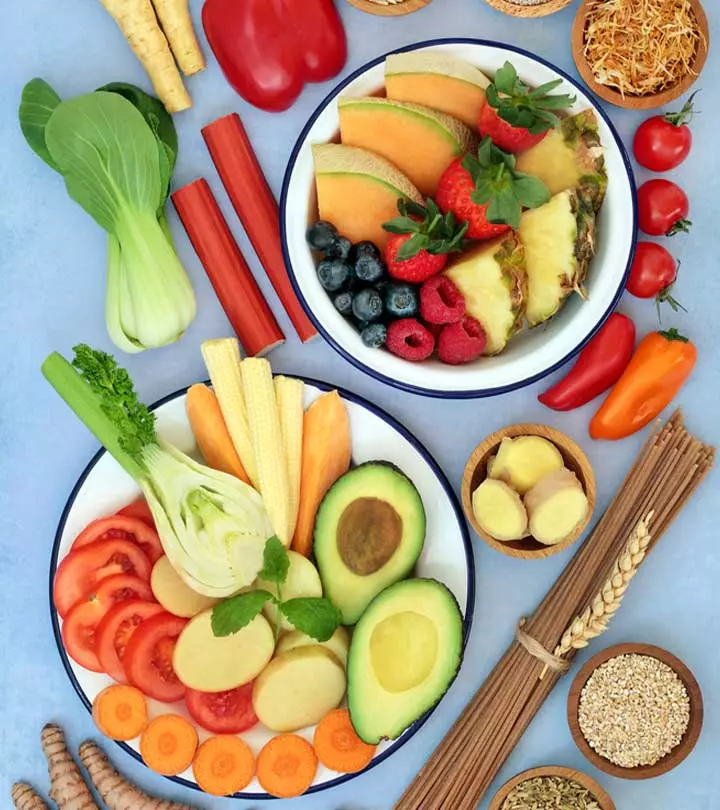


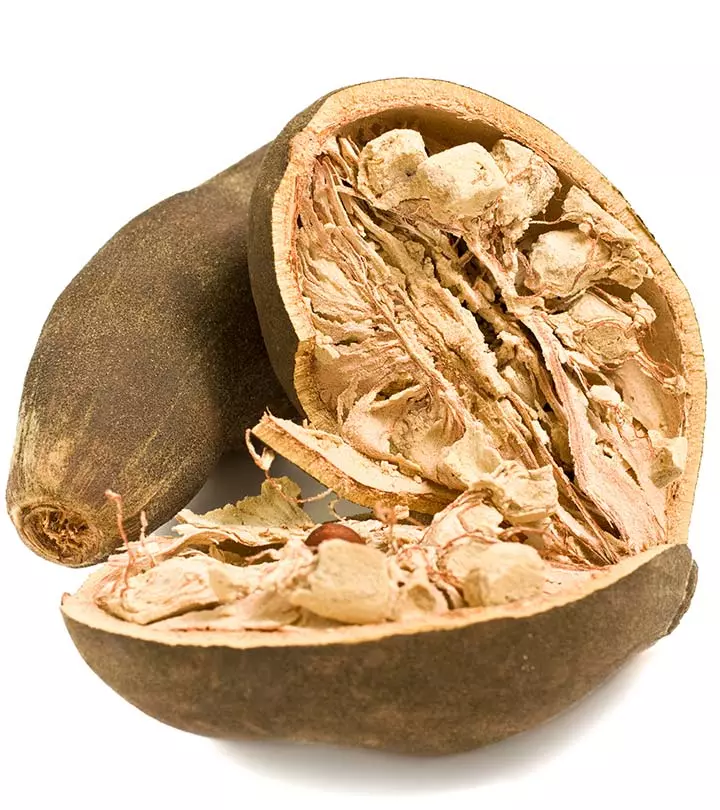
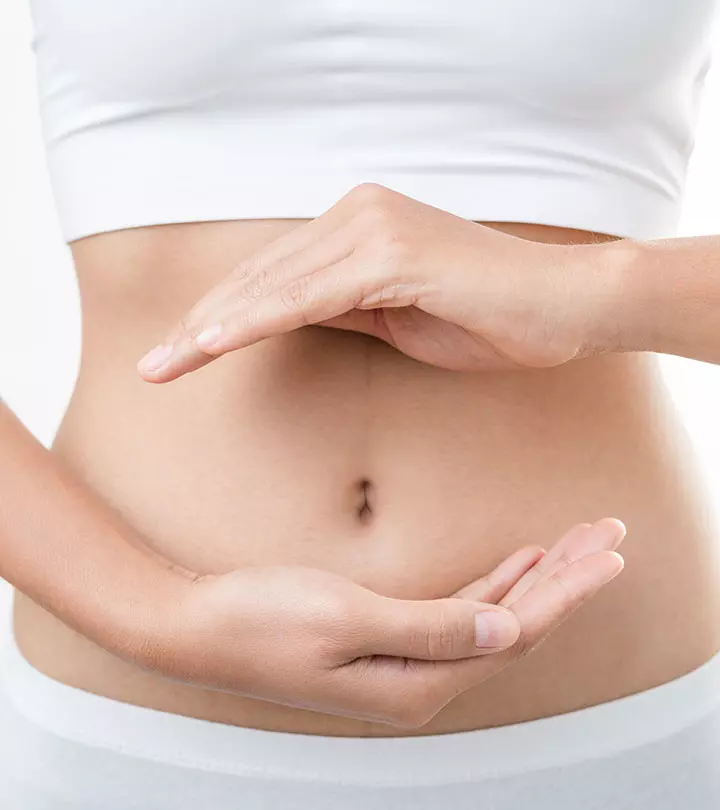

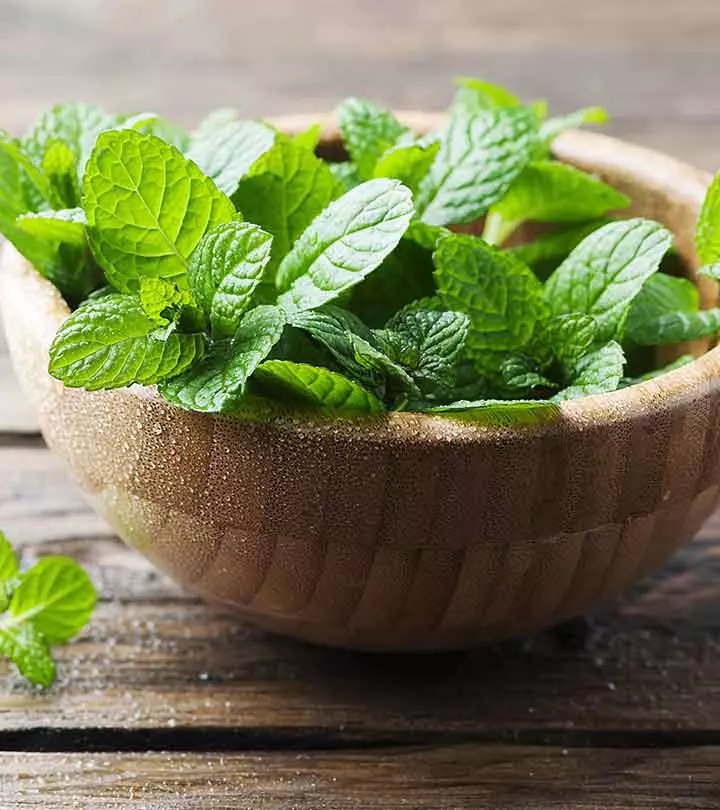

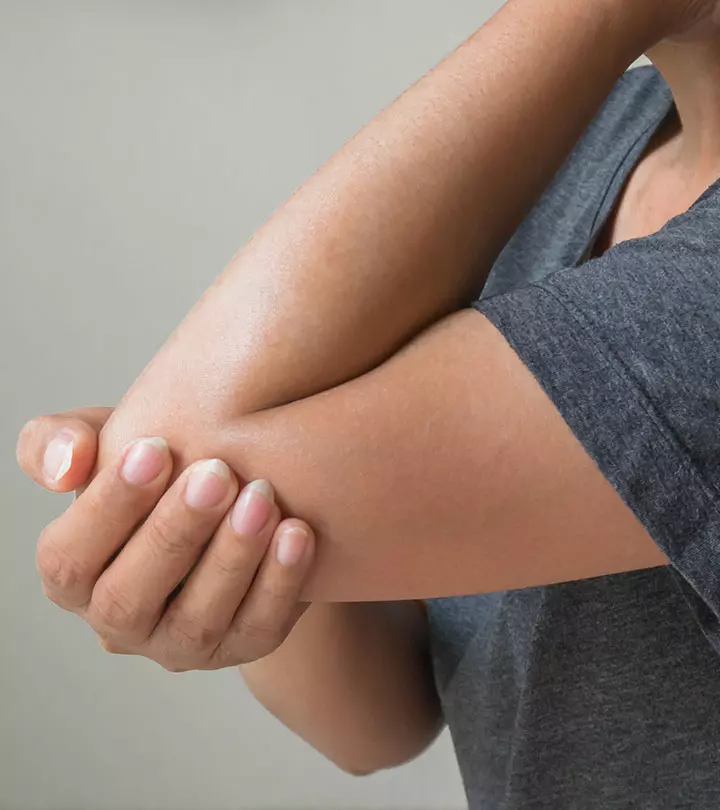
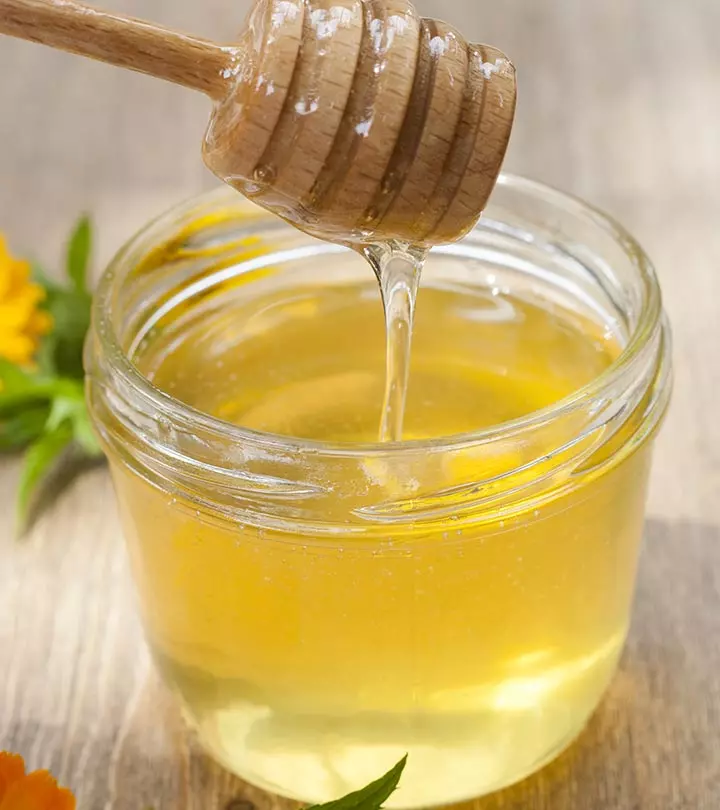








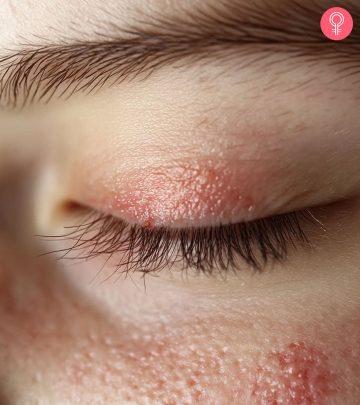

Community Experiences
Join the conversation and become a part of our empowering community! Share your stories, experiences, and insights to connect with other beauty, lifestyle, and health enthusiasts.